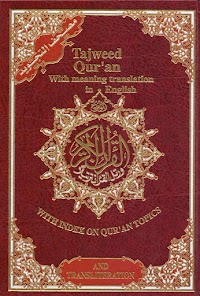Related Posts
- Invitation To A Good Tidings23 Feb 20170
Dr.Ibrahim S. Abunayyan Language: English | Format: PDF | Pages: 21 | Size: 1 MB EVER SINCE its revelation 1400 years ago, the Qur’an has bee...Read more »
- Contemplation23 Feb 20170
Sheikh Muhammad Saleh al-Munajjid Language: English | Format: PDF | Pages: 15 | Size: 1 MB All perfect praise is due to Allaah; I testify tha...Read more »
- Choose Your Path18 Feb 20170
Ayman Bin Baha Uddin Al-Siraj Language: English | Format: PDF | Pages: 54 | Size: 1 MB My need of knowing who created me , the aim of my exis...Read more »
- What You Must Believe About Your Creator18 Feb 20170
Shaikh Muhammad ibn Saleh al-Uthaimeen Language: English | Format: PDF | Pages: 85 | Size: 3 MB (adapted from the book, ‘Aqeedah at-Tawheed’ by...Read more »
- “Allah” (SWT): Frequently Asked Questions18 Feb 20170
Sheikh Yusuf Estes Language: English | Format: PDF | Pages: 18 | Size: 1 MB “Is there evidence God exists?” Answer: Yes. Allah has sent d...Read more »
- The Key To Happiness18 Feb 20170
AbdulRahman Bin Abdulkarim Al-Sheha Language: English | Format: PDF | Pages: 77 | Size: 1 MB All praise is due to Allah alone, and may Allah ex...Read more »
- Awqaf Magazine ( No.35)19 Mar 20190
مؤلف الكتاب: kuwait awqaf public foundation الناشر: Kuwait Awqaf Public Foundation سنة النشر: 2018 عدد صفحات الكتاب: 28 عدد زيارات الك...Read more »
- كتاب: Tajweed Quran with Meanings Translation and Transliteration in English=مصحف التجويد مع ترجمة المعاني إلى الإنجليزية (ملون)16 Jun 20183
عنوان الكتاب: Tajweed Quran with Meanings Translation and Transliteration in English=مصحف التجويد مع ترجمة المعاني إلى الإنجليزية (ملون)...Read more »











Post a Comment
EmoticonClick to see the code!
To insert emoticon you must added at least one space before the code.